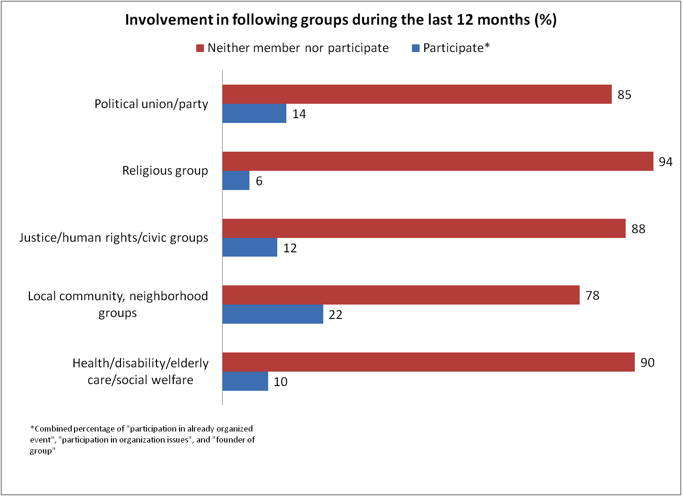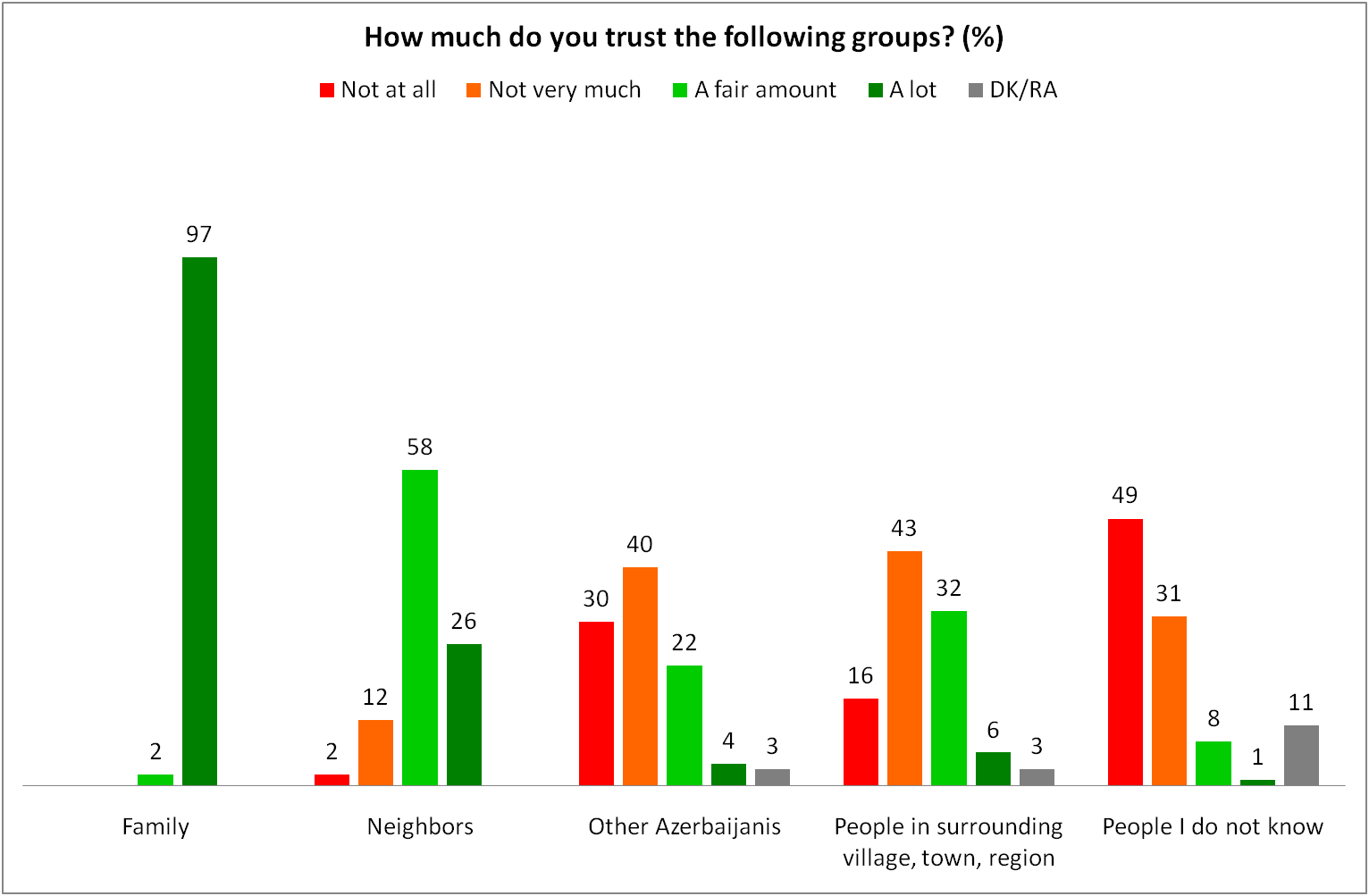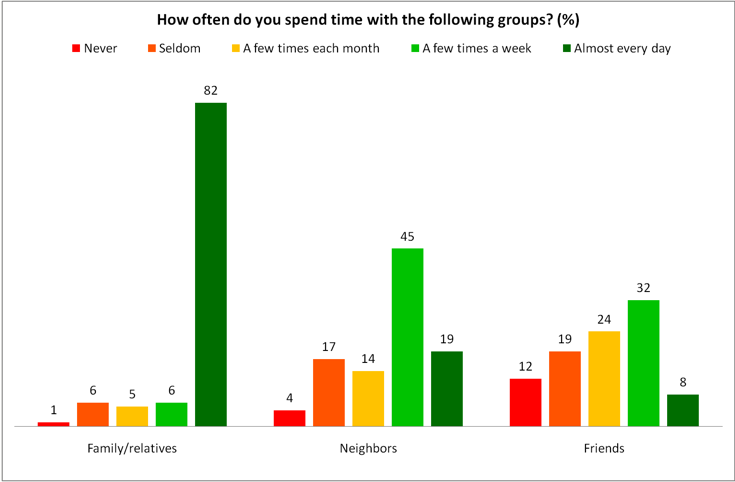Accordingly, Azerbaijanis spend considerable amounts of free time with family members and neighbors. Almost 90% of Azerbaijanis said they spend time with family at least a few times a week, while 64% indicated the same for neighbors. Moreover, 40% claimed to spend time with friends at least a few times a week.
Levels of trust and association diminish, however, in relation to more distant, non-familial social networks (refer to chart 2). Exactly 70% of Azerbaijanis claimed to have little or no trust toward other Azerbaijanis. Similarly, nearly 60% indicated little or no trust toward residents in their surrounding village/town/region. Unsurprisingly, 80% of people in Azerbaijan indicated little or no trust toward people they did not know.
Thus, Azerbaijanis’ trust in family members, friends, and immediate neighbors is generally high, while their involvement in civic groups remains low. Minimal civic engagement may be a function of Azerbaijanis’ lack of efficacy in civic groups, as well as the fact that participation in such groups entails association with more distant social actors in whom Azerbaijanis have lower levels of trust.
Levels of trust and civic engagement also impact on how Azerbaijanis address personal and local problems. Over 15% of Azerbaijanis indicated they “always” talk about personal problems with relatives; 32% “often” discuss such problems, while 29% “sometimes” discuss personal problems with family members. Furthermore, respondents expressed the highest levels of confidence in friends and family members in matters of financial and job support.
Azerbaijanis likewise address certain community issues through personal/local relationships. Nearly 50% of Azerbaijanis stated they discuss communal problems with neighbors at least “sometimes”. Similarly, 41% of respondents indicated that neighbors clean common spaces communally, while 45% indicated that neighbors clean such spaces alternately.
Given traditionally low levels of membership in civic groups and trust in distant social networks, it seems unlikely that civic engagement in Azerbaijan will increase in the near future. However, as long as familial and immediate personal connections remain vibrant, it is plausible that Azerbaijanis will be able to leverage social capital in order to deal with personal and community issues. To examine this issue in greater detail, readers can explore the Social Capital, Media and Gender Survey dataset using CRRC’s Online Data Analysis tool.



